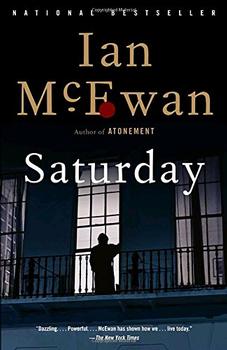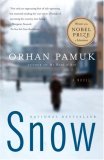Summary | Excerpt | Reading Guide | Reviews | Read-Alikes | Genres & Themes | Author Bio

Fury is a work of explosive energy, at once a pitiless and pitch-black comedy, a profoundly disturbing inquiry into the darkest side of human nature, and a love story of mesmerizing force.
"Life is fury. Fury-sexual, Oedipal, political, magical, brutal -- drives us to our finest heights and coarsest depths. This is what we are, what we civilize ourselves to disguise the terrifying human animal in us, the exalted, transcendent, self-destructive, untrammeled lord of creation. We raise each other to the heights of joy. We tear each other limb from bloody limb."
Malik Solanka, historian of ideas and dollmaker extraordinaire, steps out of his life one day, abandons his family without a word of explanation, and flees London for New York. There's a fury within him, and he fears he has become dangerous to those he loves. He arrives in New York at a time of unprecedented plenty, in the highest hour of America's wealth and power, seeking to "erase" himself. Eat me, America, he prays, and give me peace.
But fury is all around him. Cabdrivers spout invective. A serial killer is murdering women with a lump of concrete. The petty spats and bone-deep resentments of the metropolis engulf him. His own thoughts, emotions, and desires, meanwhile, are also running wild. A tall, green-eyed young blonde in a D'Angelo Voodoo baseball cap is in store for him. As is another woman, with whom he will fall in love and be drawn toward a different fury, whose roots lie on the far side of the world.
Fury is a work of explosive energy, at once a pitiless and pitch-black comedy, a profoundly disturbing inquiry into the darkest side of human nature, and a love story of mesmerizing force. It is also an astonishing portrait of New York. Not since the Bombay of Midnight's Children have a time and place been so intensely and accurately captured in a novel.
In his eighth novel, Salman Rushdie brilliantly entwines moments of anger and frenzy with those of humor, honesty, and intimacy. Fury is, above all, a masterly chronicle of the human condition.

If you liked Fury, try these:

by Ian McEwan
Published 2006
An astonishing novel that captures the fine balance of happiness and the unforeseen threats that can destroy it. A brilliant, thrilling page-turner that will keep readers on the edge of their seats.

by Orhan Pamuk
Published 2005
A spellbinding tale of disparate yearnings – for love, art, power, and God – set in a remote Turkish town, where stirrings of political Islamism threaten to unravel the secular order; by the winner of the 2006 Nobel Prize for Literature.